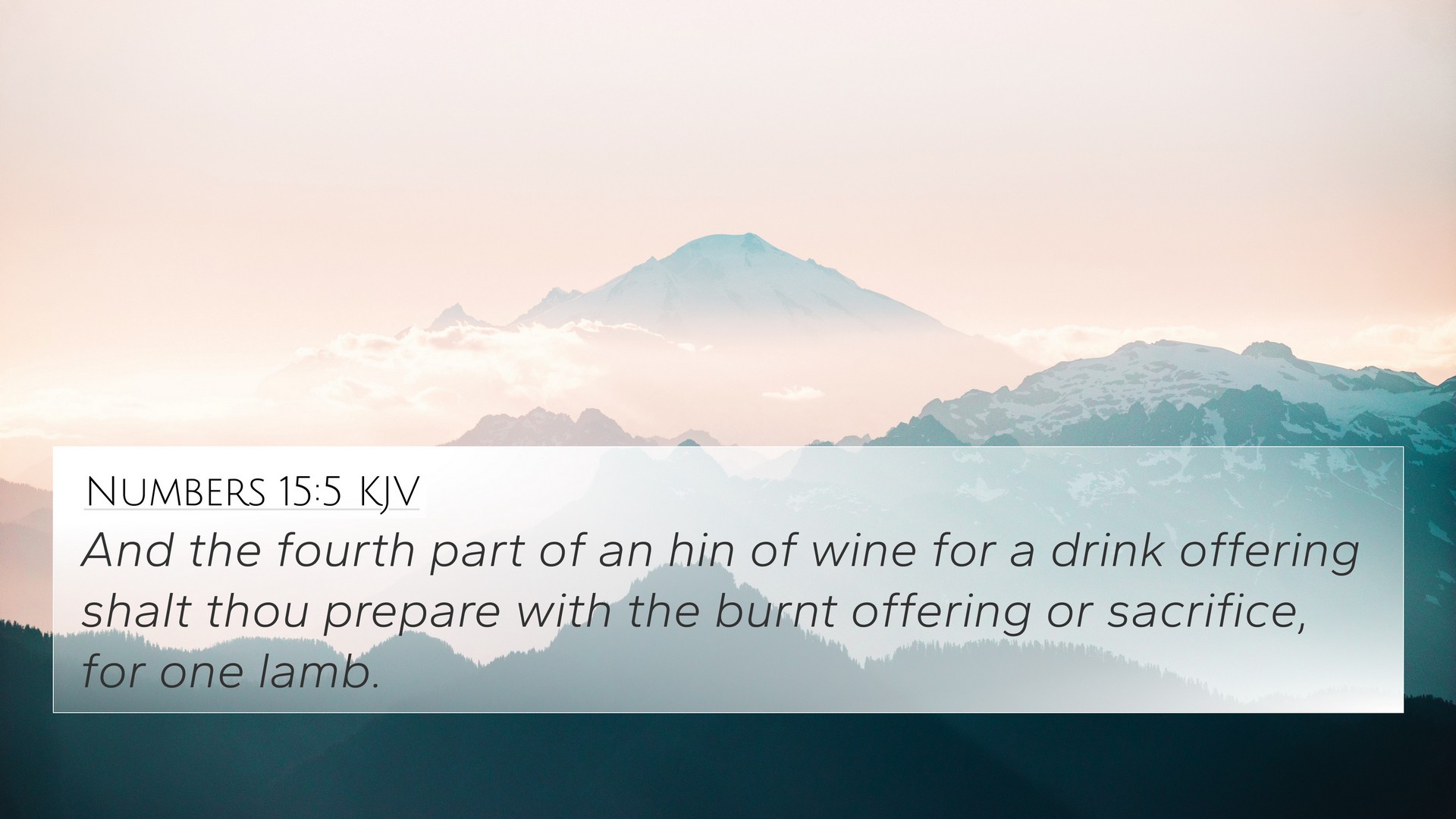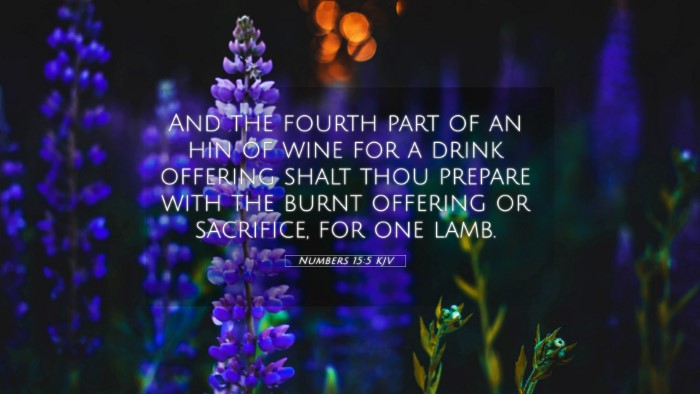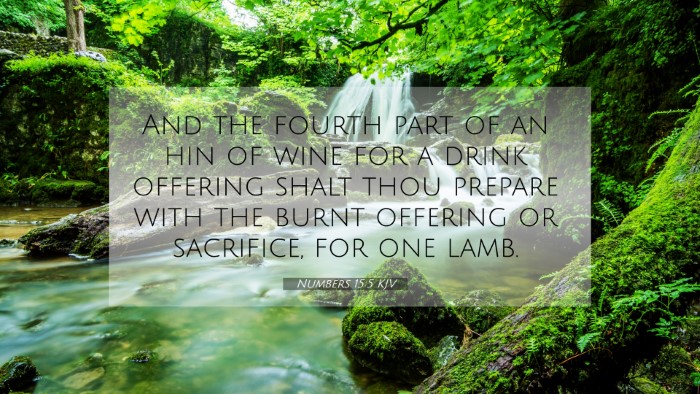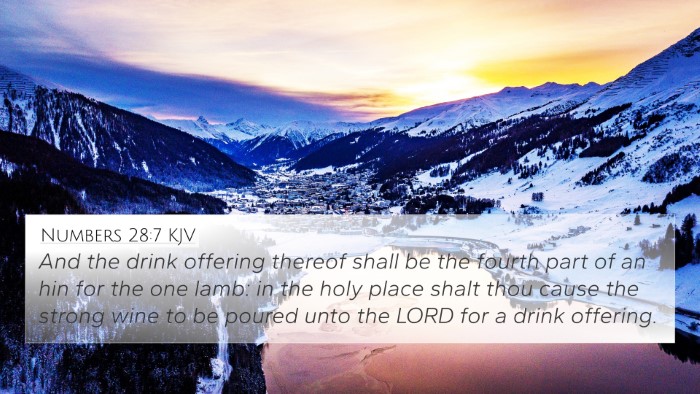Understanding Numbers 15:5
Numbers 15:5 states, "And one-tenth of an ephah of fine flour for a grain offering mixed with one fourth of a hin of oil." This verse outlines specific instructions regarding the offerings presented to God, reflecting the importance of worship and communal rituals in ancient Israel. Below is an interpretative synthesis derived from several public domain commentaries.
Verse Meaning and Context
The commandment in this verse is part of a larger section that details the offerings that the Israelites were to bring, particularly as a response to their daily acts of worship and the community’s needs. The grain offering represents a dedication of the fruits of the earth back to God, acknowledging His provision and blessings.
Insights from Commentaries
- Matthew Henry: Henry emphasizes the significance of the grain offering as an acknowledgment of God's goodness. He sees it as an integral part of worship, wherein these offerings were to symbolize the worshipper's gratitude and willingness to sustain the religious community.
- Albert Barnes: Barnes notes the details of the offerings and their precise measurement are indicative of God's orderliness. He also points out that the oil signifies the role of the Holy Spirit's presence in the offering, thus enriching the act of worship.
- Adam Clarke: Clarke discusses the symbolic meaning behind the flour and oil. He explains that the fine flour represents purity and the oil relates to the anointing, making the offerings not only vital for worship but also rich in symbolism and spiritual significance.
Bible Verse Cross-References
To deepen understanding of Numbers 15:5, we can identify several related verses that expand on the themes of offerings, worship, and God’s expectations:
- Leviticus 2:1-2: This passage elaborates on the grain offering, echoing the concept found in Numbers 15:5 and elaborating on the conditions and practices surrounding it.
- Exodus 29:40-41: This verse details the daily offerings that were meant to occur, furthering the understanding of continuous worship.
- Deuteronomy 16:16-17: Instructions are given for offering, emphasizing that every man should appear before God with his gifts, shedding light on communal aspect of offerings.
- Psalms 104:14-15: A poetic reflection on how God provides grain for man’s sustenance, linking back to the theme of offering back to the giver.
- Hebrews 13:15: A New Testament reflection on giving praises as sacrifices, aligning the offerings of the Old Covenant with worship expressions in the New Covenant.
- Matthew 5:23-24: Jesus teaches the importance of reconciliating before bringing offerings, highlighting the heart behind worship rather than the form.
- Romans 12:1: The apostle Paul speaks to presenting ourselves as living sacrifices, resonating with the intentions of Numbers 15:5.
Thematic Connections
Exploring thematic Bible verse connections, we see how Numbers 15:5 links to concepts of sacrifice, gratitude, and divine order. These themes are prevalent throughout Scripture:
- Sacrifice: The concept of offering resources back to God underscores a fundamental aspect of worship seen throughout both Testaments.
- Gratitude: The practice of giving flour and oil reflects a heart of thankfulness, signaling a key attitude seen in Psalmic literature as well as in the teachings of Christ.
- Divine Order: The structured approach to offerings implies a God who values intentionality and organization in worship, a theme carried into the New Testament church practices.
Conclusion
Numbers 15:5 serves as a crucial pivot in understanding Israel's worship practices, grounding readers in themes that emphasize gratitude, divine ordination, and relational worship. By exploring Bible verse parallels and engaging in scriptural cross-referencing, one can appreciate the continuity and depth of God's covenant relationship with His people.
Further Studies
For those seeking deeper engagement with these themes, utilizing tools for Bible cross-referencing such as a Bible concordance or Bible cross-reference guide can enhance your understanding and connection between verses throughout Scripture.











